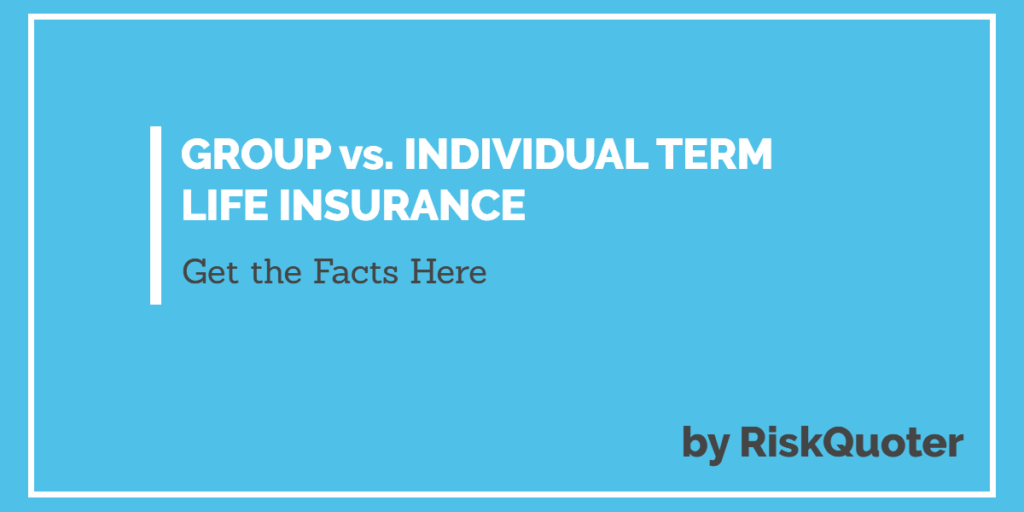Group life insurance is a type of life insurance provided to company employees or members of an organization.
The employer usually pays for a base group coverage amount; supplemental coverage is available for purchase. The type of life insurance available is usually a term policy.
Pros of Group Life Term Policies
Group Life term policies offer some pros, including:
- No Medical Exams Required: This is a huge selling point for many individuals. You can skip the medical underwriting process typically required for individual policies, at least for the base group coverage offered.
- Affordable Rates: Group policies are generally affordable, making them an economical choice for many employees.
- Automatic Enrollment Option: Often, you can sign up for group life insurance during your company’s open enrollment period, making it a hassle-free process.
Cons of Group Life Term Policies
- Limited Coverage Options: With group policies, the free base amount doesn’t require underwriting. You are subjected to underwriting if you want the additional supplemental group life.
- Dependence on Employment: If you leave your job, you risk losing your coverage, making group life insurance vs. term life insurance a crucial consideration.
- Limited Portability and Convertibility: If you leave your job, taking your policy with you or converting it to an individual policy can be expensive! You no longer get the group rate; the policy must be converted to a permanent whole-life product.
Another con of group life insurance is the limited amount available through work. According to the GenRe 2022 Group Life Term Survey, the average face amount is $102,817—insufficient to support a family.
If you don’t buy individual life insurance, your family could end up with a GoFundMe life insurance campaign.
Group vs. Individual Term Life Insurance
Individual term life insurance is a policy you purchase independently from an insurance company. It covers a specific term, typically 10, 20, 30, or 40 years.
You get to choose the amount of coverage you would like to have.
Pros of Individual Term Life Insurance
- Flexibility in Choosing Coverage: Unlike group policies, individual term life insurance allows you to choose the coverage amount that fits your needs. You can even select multiple policies and/or term lengths.
- Stability, Not Connected to Employment: Your policy is not tied to your job. So, no matter where you work, you control your policy, not your employer.
- Potential for More Comprehensive Coverage: Individual policies offer additional features and life insurance riders that group policies do not provide.
Cons of Individual Term Life Insurance
There aren’t many cons of individual term life, but here are a few potential negatives.
- Higher Costs: Individual life insurance policies can be more expensive than the base group policy offered for free. However, it pays to compare once you start looking at the additional group coverage.
- Possible Need for Medical Examination: A paramedical exam may be required if you do not qualify for accelerated underwriting.
- The Process Can Be More Complex and Time-Consuming. For healthy people, the application and approval process for individual policies typically takes longer. Group (above the base amount) and individual policies require additional underwriting if you have a high-risk health issue.
Comparing Group and Individual Term Life Insurance
Coverage: Individual policies provide more extensive coverage than group policies.
This difference in group term life insurance vs. individual term life is something to consider if you have substantial financial obligations.
Costs: The base group policy offered by employers is more affordable than an individual policy, typically because your employer gives it to you for free, and you should accept it.
But you should also know that your group life insurance rate will continue to increase every five years.
Comparison Example
For example, take a look at the following comparison – Male, age 44, $500,000 of life insurance
| Company Name | Monthly Premium |
|---|---|
| Group – VGLI – Veteran’s Group Life Insurance (1) | $80.00 |
| Group – Government Employee’s Group Term Life (2) | $65.00 |
| Group – AICPA Group Term Life Insurance – 10-Year Rate | $33.00 |
| Individual – Symetra – 10-Year Term (3) | $25.04 |
| Individual – AIG – 20-Year Term (3) | $41.05 |
However, as soon as you start looking at group coverage amounts above the base, you need to get comparisons to an individual term life insurance policy.
Stability and Portability: Individual policies are more stable because you control them and aren’t connected to your employment.
With a group policy, you need to look at the portability rules. Portability allows you to take the coverage with you should you leave your job or get fired.
Eligibility and Enrollment Process: Group policies (the base part) don’t require medical underwriting, while individual life insurance policies do.
With base group coverage, you typically check the box on your benefits package, and you’re done.
You must answer underwriting questions if you want supplemental life insurance coverage through work.
Conversion Options: Individual policies offer better conversion options to universal or whole life insurance.
Group policy conversion options are typically limited to some lousy, overpriced whole-life product.
Just ask your HR rep to give you some information on the conversion option to see for yourself.
Recent Articles:
Lakewood Ranch Life Insurance
Are Final Expense Insurance Policies a Ripoff?
Life Insurance With Living Benefits – What You Need to Know
Did you know that life insurance policies with living benefits can pay you before you…
Life Insurance 101: A Friendly Guide to Life Insurance Basics
How Much Life Insurance Do You Need?
The Complete Guide to Buying Term Life Insurance: Key Insights and Expert Tips
Factors to Consider When Choosing Between Group and Individual Term Life Insurance
Your Health: The base group policy might be beneficial if you have a high-risk health issue, as it usually doesn’t require medical underwriting.
If you want more than the base amount, individual life insurance is a better choice, as we can match you with the best company based on your health condition.
Your Financial Situation: Always take the free group policy. That’s a no-brainer.
So, if your police department offers group, take it, and then look to add individual.
Beyond that, get individual term life insurance for a better rate and more comprehensive coverage.
Your Job Stability: When considering term vs. group life insurance, consider your job stability. A change in employment can affect your group policy.
You most likely will not take the group coverage with you as the pricing changes to an individual policy rate, and those rates suck compared to personal coverage.
Your Family’s Needs: Individual policies usually offer more coverage, which can be crucial if you have dependents or significant financial obligations.
Long-term Perspective: An individual term policy could be converted to permanent life insurance or kept as a term policy.
A group policy must be converted to a whole life policy when you leave employment.
FAQ
Final Thoughts
Accepting the free group coverage provided by your employer is a good idea simply because it’s free.
Beyond that, individual life insurance is a better option because it allows you to get the coverage you need and the control over your policy that group coverage does not provide.
Ensure peace of mind for your family tomorrow. Get a quote for life insurance today.






